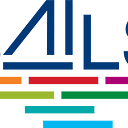About SAILS
SAILS is a university wide initiative aiming to facilitate collaboration across disciplines on the use of Artificial Intelligence (AI).
By building on and expanding the existing expertise of AI at Leiden University, this project intends to advance science and improve the quality of daily life. It is one of Leiden University’s interdisciplinary programmes. The following disciplines are involved: Archaeology, Humanities, Social & Behavioural Sciences, Law, Public Administration, Sciences and the Leiden University Medical Centre (LUMC).
AI through the ages
AI appears to be a modern phenomenon, however, humans have been trying to create automated systems for centuries. Philip II ordered in about 1560 a robot monk to be built; the automaton could move around and operate its mouth and arms in prayer. The machine still works to this day, thanks to a mechanical clockwork system.
More recently, AI has developed and is applying itself to more practical usage and is key to improving a huge range of issues. It is therefore important to all faculties of Leiden University. In Archaeology, for example, AI is used to spot Roman villas from the air, in Medicine it is used to recognise diseased tissues and in Linguistics it is used to help us understand speech. Modern society would not be the same without it; it affects our life on a daily basis: in (data) security, in what news we read or what we buy online.
Interdisciplinarity
To remain a central part of new advances in this field, interdisciplinary research and teaching is vital. This programme will do just that by facilitating the further developmet of Leiden University’s extensive knowledge and experience with AI. Moreover, the synergy flowing from this collaboration will bring about new creativity, funding and inspiration. This project also aims to address the social, political, legal and ethical questions AI potentially raises.
- How can artificial and human intelligence work together?
- What decisions can AI make and who will be responsible?
- How will society change and what new possibilities will emerge as a consequence?
